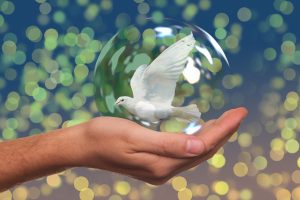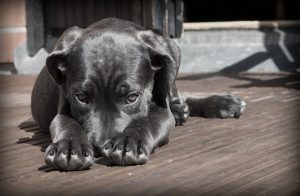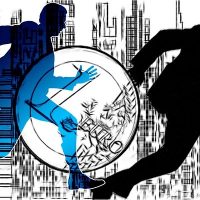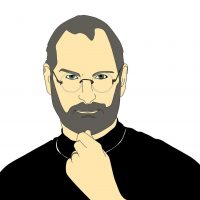This time, several entrepreneurs who started their businesses in the U.S and have been learning at Seiwajuku shared their experiences with other members. The majority of them have had difficulties in their business growth under the very harsh competition as well as the “profit driven” environment in the U.S. However, Julie, the owner and the president of a food company, has steadily developed his business and expanded branches in several cities in the U.S.
The difference between Julie and others are as follows:
1 Be pure
2 Obedient
3 Reflection
4 Follow God’s will not common sense
5 Respect and care spouses
1 Be pure

Julie used to be a member of “Biker gangs” in Japan. As he got matured, he left the group and started working in a company. But he got hurt when he found his colleague was trying to stay away from him due to his biker gang background.
Mr. Inamori talked about Julie: “I can imagine how Julie found business philosophy at first, taking into account his background. He had no experience to learn such materials. But after he was encouraged to work hard and he came into contact with Seiwajyuku, then he changed. I believe he originally was born with such talents, the sensitivity towards philosophy, which implies something really good. But he had few opportunities to learn those topics. As a chunk of sponge absorbs water, he had actively learned philosophy.
Being pure is very important to get success in your business.
2 Obedient

Another person who started a business in the United States, Andy (pseudonym), said:
“In the United States, only contracts can be trusted. Seiwajyuku is a study session for entrepreneurs, so I expected that I could learn practical techniques such as marketing methods and management practices immediately. I was disappointed that it wouldn’t be very useful because I heard many topics that seemed to have nothing to do with business, such as the philosophy and management visions. Furthermore, they suggest repeating six devotions for the business success. I thought what ridiculous people they are. I had survived many difficulties by believing “the rich are the strongest”. I thought I can only rely on money. In a harsh competition in American society, I have been struggling alone. For me, philosophy looked a fantasy, which we would never ever realize.
On the other hand, Julie after joining Saiwajuku workshop, he said as follows.
“… But when I unintentionally opened the brochure of Seiwajyuku, I found a sentence: What is the objective of our lives? ” When I noticed that, I found myself so concentrated on the contents of the philosophy. I really enjoyed reading and realized myself to be well fulfilled. I also found out that the satisfaction from a variety of luxury and lavish staffs would never fundamentally fill me in. With such idea overflowing, I found myself feeling a sort of loneliness, emptiness and solitudes. ”
Both managers touched on Mr. Inamori’s philosophy, but the reactions are different. While Andy captured the contents distorted or bent under the assumptions that this should not be real, Julie just obediently and openly listened to Mr. Inamori.
I think that this difference in attitude between the two is reflected in the subsequent development of their companies.
3 Reflection

Julie said
Especially, what struck me was the words “Knowing sufficient is important”, that I learned from Seiwajuku workshop. I realized that I had been obsessed with materials, especially for luxury goods. I also found out I had been empty, despite of such luxury goods. I started enjoying the workshops. Before the Seiwajuku, I was the president who was always telling employees, “You are idiot, remember, I can fire you!! ” This was also a big change, and I started persuading the same staff through different approach.
I had been a very selfish guy. I thought it would be difficult to conduct such good philosophies. But I believed that I could conduct philosophy, if I overcome my selfish by doing things for someone else as suggested by Mr. Inamori. That would be turned into the altruism. I started looking at what I already had. First of all, I divested assets which had no more been in use. I started finding values of goods left to me.
points No4 and 5 will be explained in the next blog.
Further queries or doubts, please email to ytomizuka@abrilsjp.com
News Letter subscription is here











